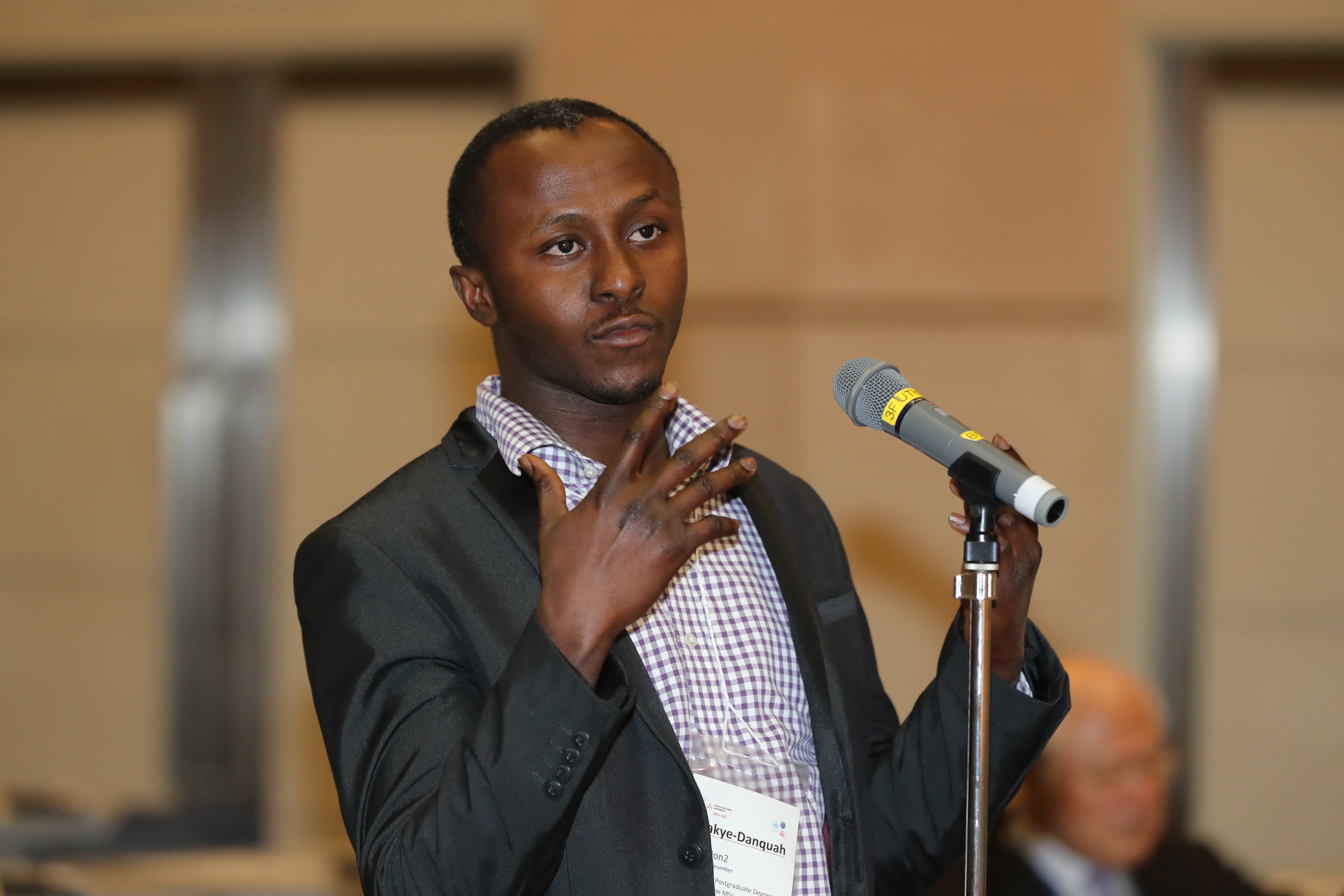
John visits Japan to present findings of his research on the role of the Kyoto Model Forest Association (KMFA) in forest governance
From 10 – 14 March 2017, John visited Japan to present the findings of his research on the role of the Kyoto Model Forest Association (KMFA) in the governance of small-scale forests.
By John B. Danquah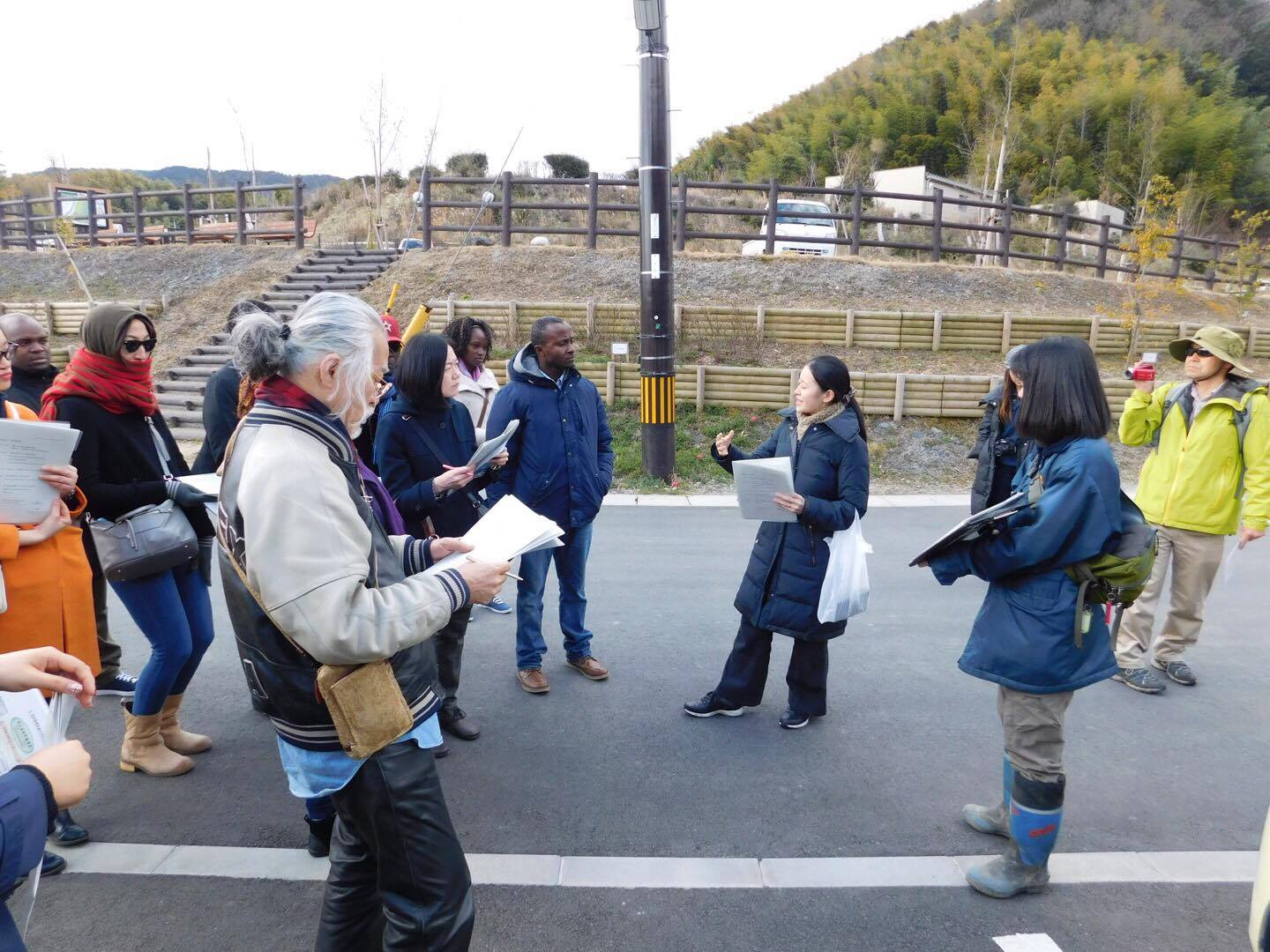
While in Japan, John first visited Kyoto and discussed his research findings with some graduate students from Sophia University. The students from the Global Environmental Studies program had visited Kyoto to learn about the participation of corporate organizations in forest management through the KMFA’s forest governance program.
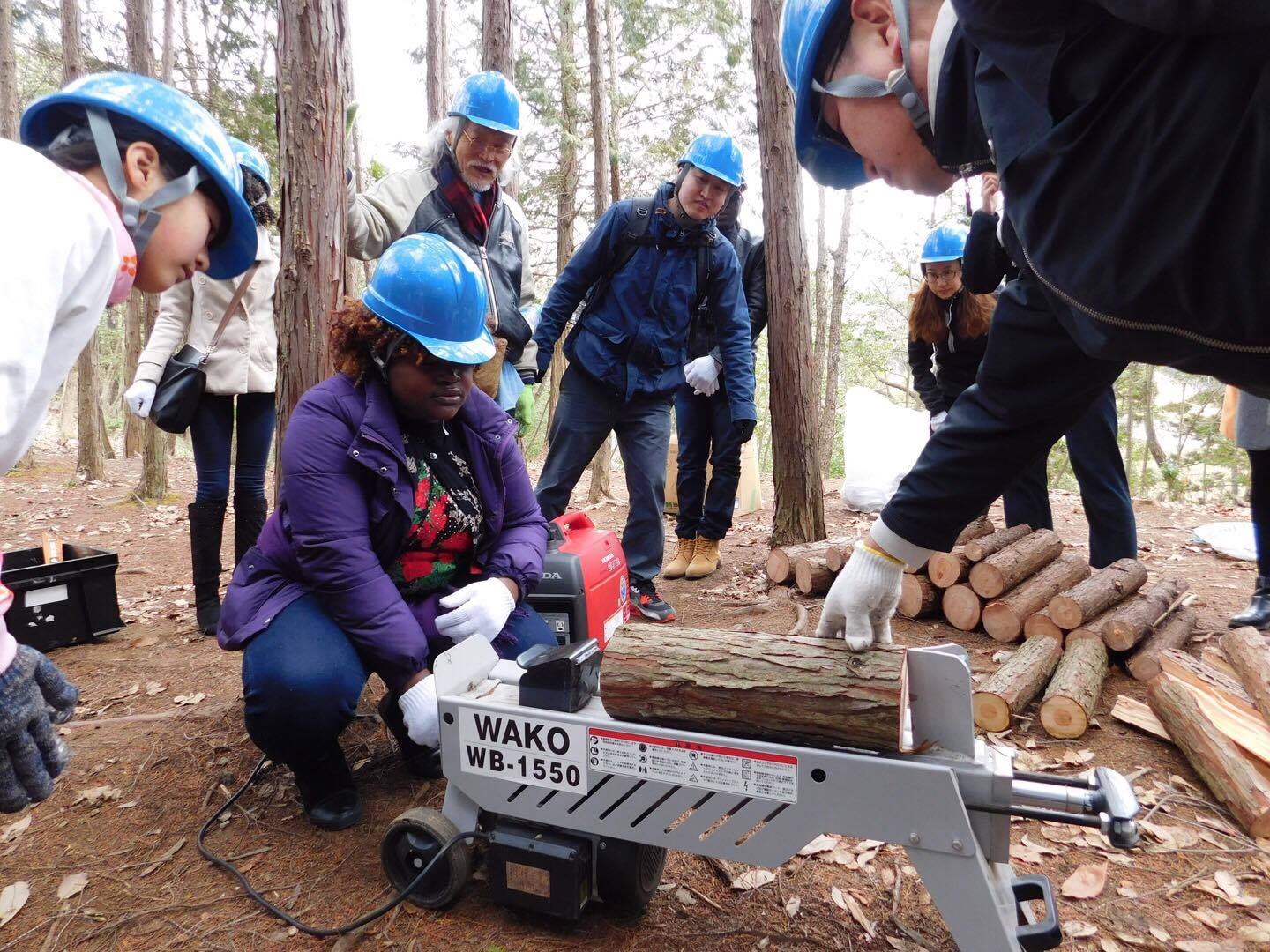
Prior to the interaction with the students, John had the opportunity to join them on a field trip to the Nishiyama Forest in Kyoto. In addition, John also met with the Administrative Secretary of the KMFA Ms. Hiroko Tanaka as well as some local government forestry officials in Kyoto.
UNU-IAS Alumni Symposium
John’s second visit in Japan took him to Tokyo. In Tokyo, John attended the United Nations University –Institute for the Advanced Study of Sustainability (UNU-IAS) Alumni Symposium organized by the Japan Foundation for the United Nations University. The symposium brought together participants from academia, civil society, government, and the private sector to discuss the opportunities and challenges for achieving the Sustainable Development Goals (SDGs).
At Symposium, John presented a poster of his research involving the KMFA. John also contributed to discussions on how to advance the SDGs during the Symposium’s open forum.
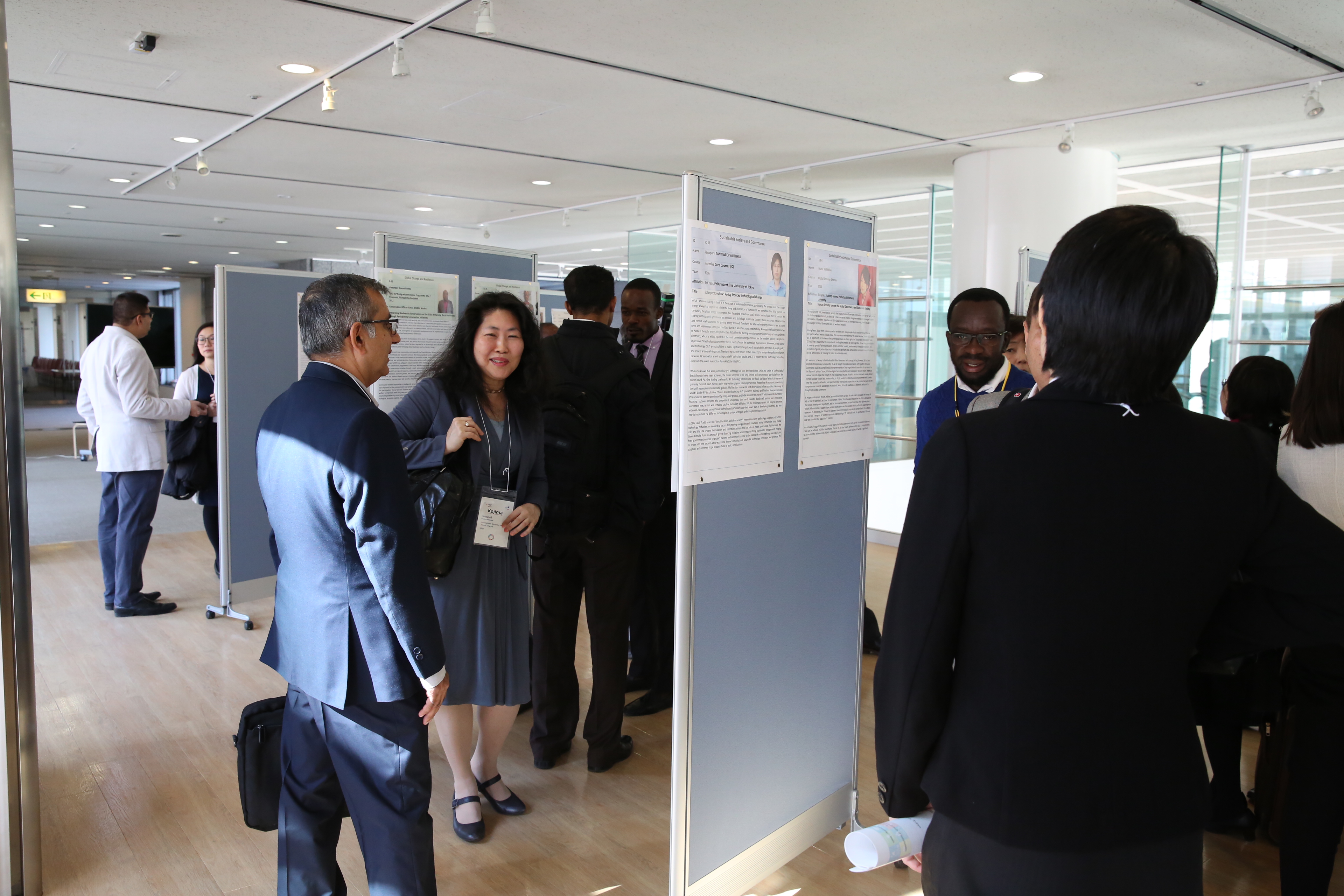
UNU International Symposium on Biodiversity and Sustainability

Again at the UNU, John attended an International Symposium on Biodiversity and Sustainability. Leading scientists’ from the University of Tokyo’s Integrated Research Systems for Sustainability Science, Stockholm Resilience Centre, and the Natural Capital Project at Stanford University led the presentations at the Symposium.

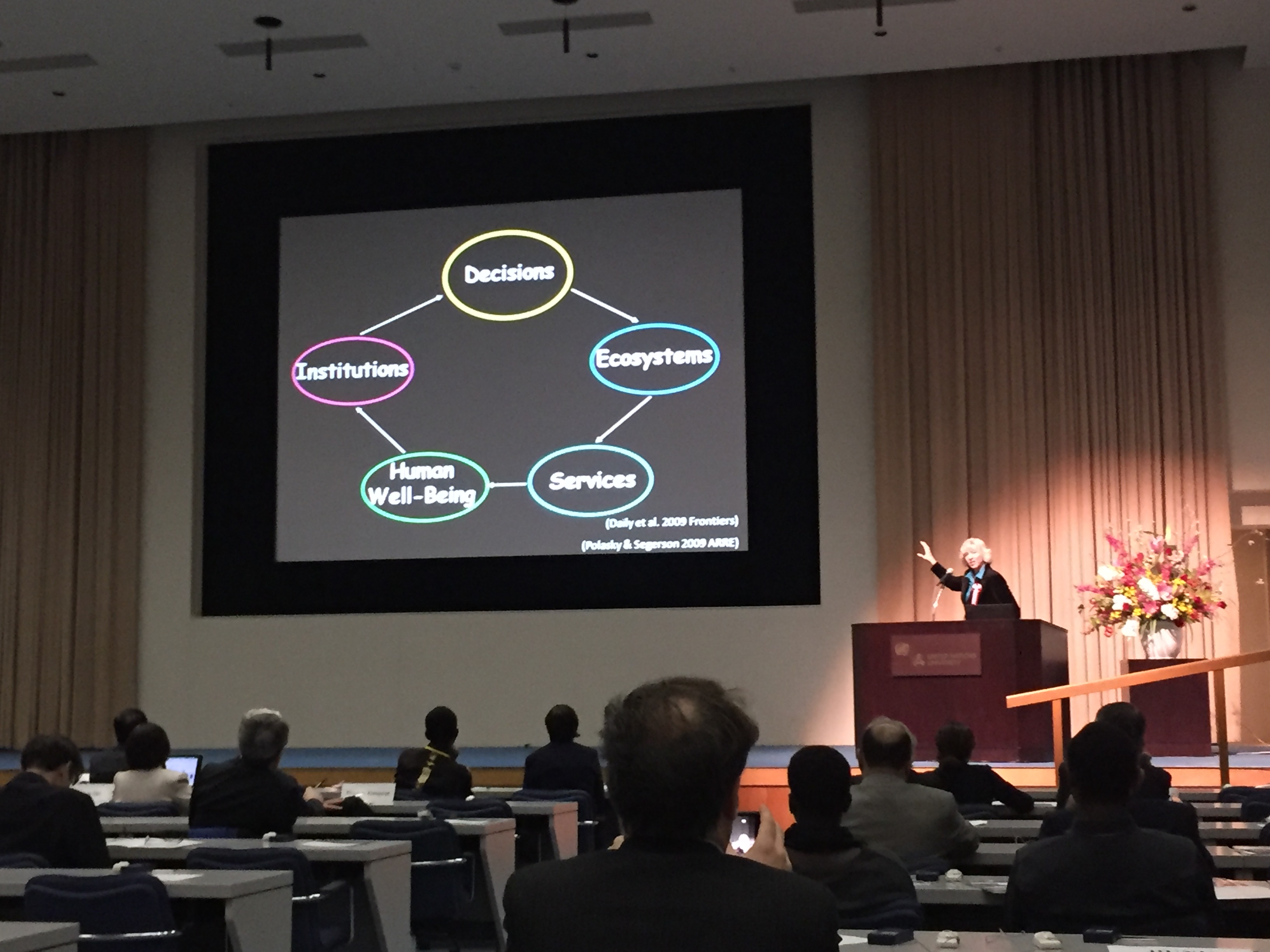
Acknowledgements
I am grateful to my supervisor, Prof. Maureen Reed, who supported me with funding for this trip. I also grateful to the School of Environment and Sustainability (SENS) and the Japan Foundation for the United Nations University for providing additional funds to cover this trip. I am also grateful to Ms. Hiroko Tanaka, the Administrative Secretary of the KMFA for inviting me to visit Kyoto. Finally, I am grateful to Prof. Shibata Shingo, Chairperson of the Graduate School of Global Environmental Studies, Sophia University, for allowing me to join the field trip to Nishiyama Forest and for giving me the opportunity to share the outcomes of my work with his students.
